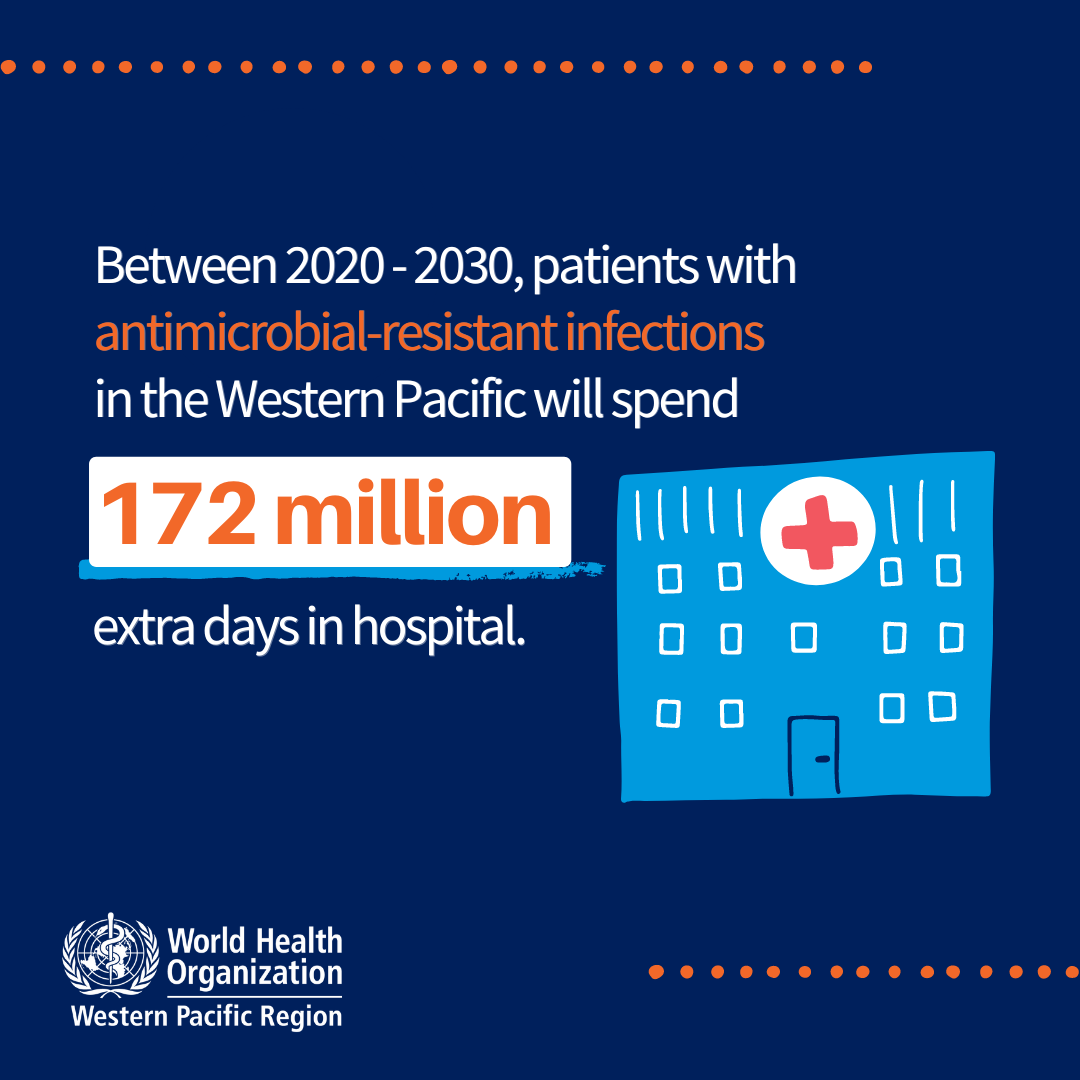
Antimicrobial resistance (AMR) threatens our health, lives and economies. If no actions are taken today, up to an estimated 5.2 million people in the Western Pacific Region are expected to die as a result of drug-resistant bacterial infections between 2020 and 2030, according to the first World Health Organization (WHO) regional assessment on health and economic impacts of antimicrobial resistance (AMR) released in 2023. The assessment also found that AMR will cost the Western Pacific Region as much as an estimated total of US$ 148 billion between 2020 and 2030 – nearly 10% of the Region’s total health expenditure in 2019 – due to lost productivity and additional health-care expenses associated with prolonged hospitalizations. By the end of 2030, patients with antimicrobial-resistant infections in the Region will spend an estimated 172 million extra days in hospital.

AMR is one of four thematic priorities of the For the Future vision of making the Western Pacific the world’s healthiest and safest region. Through the Regional Framework for Accelerating Action to Fight Antimicrobial Resistance, WHO is working with Member States to mitigate the impact of AMR.
The fight continues to be hampered by lack of investment and inadequate data. Countries must work to further accelerate implementation, monitoring and regular revision of national AMR action plans through allocation of sufficient financial and human resources. Countries need to strengthen national AMR surveillance to inform policy and clinical practice, antimicrobial stewardship to further reduce overuse and misuse of antimicrobials, and infection prevention and control to prevent and reduce the spread of AMR. In parallel, carefully designed studies are needed to fill knowledge gaps and inform feasible, cost-effective solutions.
Ensuring AMR is a top priority for governments and securing commitment to tackle the threat of AMR requires continuous awareness-raising and advocacy for urgent action among high-level policy makers using multisectoral platforms and champions. Money spent on interventions to prevent, control and combat AMR will be an investment for the future, saving on future health-care costs and protecting the workforce and economies.
Related links: